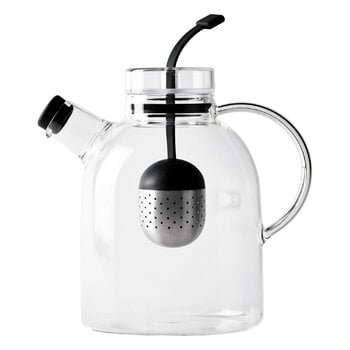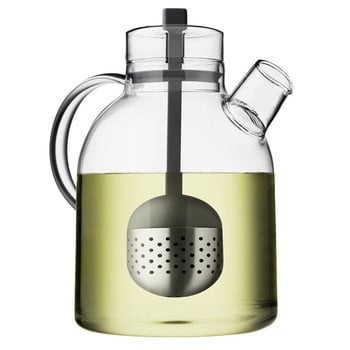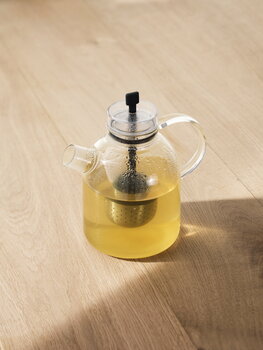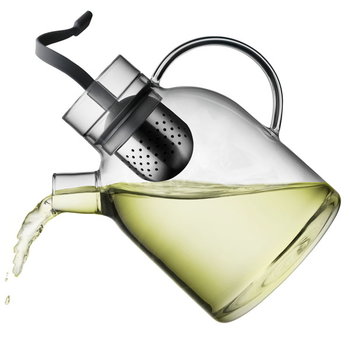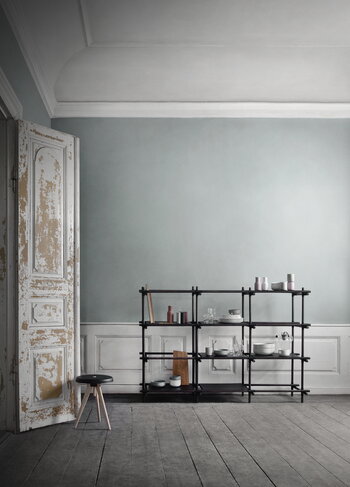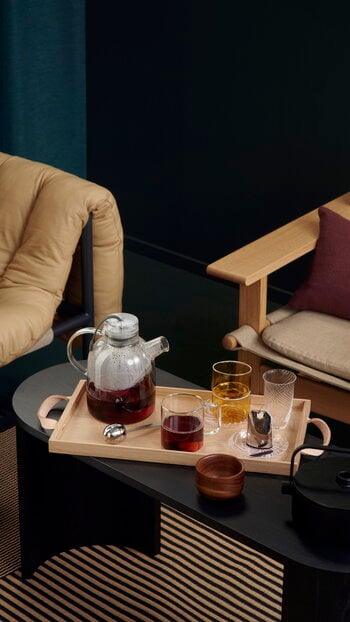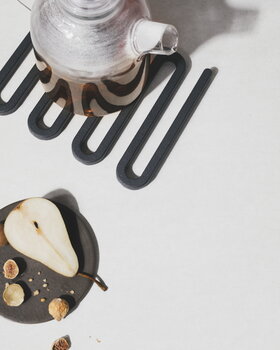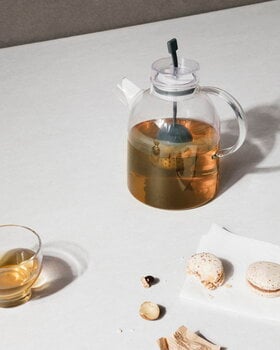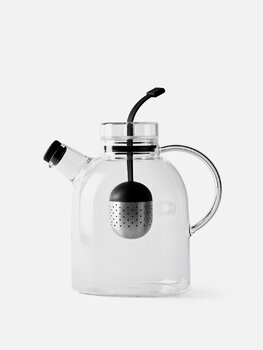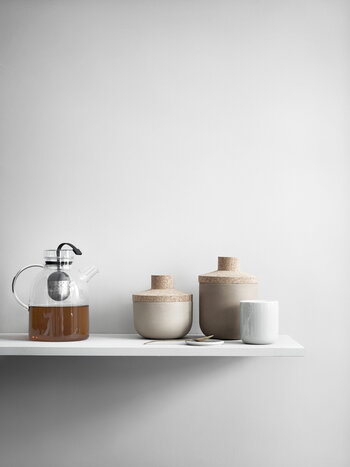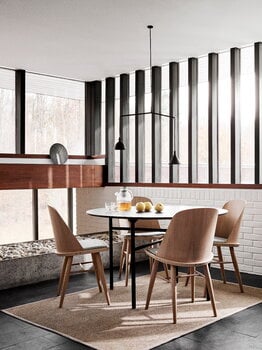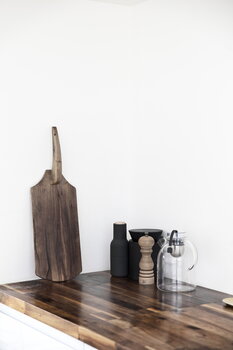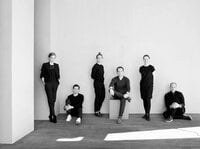The Kettle teapot, designed by Norm Architects for Audo Copenhagen, combines the tradition of tea with modern Scandinavian design. As the teapot is made of smooth transparent glass, it stimulates the sense of both sight and touch. Prepare tea by adding boiling water to the Kettle teapot or by warming up water with the Kettle teapot heater (sold separately). The tea filter, placed in the centre of the pot, is easy to lift by pulling the attached silicon string once the tea has infused and is ready to be served.
Kettle teapot 1,5 L
Audo Copenhagen
Description
The Kettle teapot, designed by Norm Architects for Audo Copenhagen, combines the tradition of tea with modern Scandinavian design. As the teapot is made of smooth transparent glass, it stimulates the sense of both sight and touch. Prepare tea by adding boiling water to the Kettle teapot or by warming up water with the Kettle teapot heater (sold separately). The tea filter, placed in the centre of the pot, is easy to lift by pulling the attached silicon string once the tea has infused and is ready to be served.
Product details (4)
- Material
- Glass, stainless steel, plastic, silicone
- Height
- 19 cm
- Diameter
- 13 cm
- Capacity
- 1.5 l
- Product ID
Designer
Norm Architects is a dynamic design duo composed by the Danish architects Kasper Rønn (b. 1976) and Jonas Bjerre-Poulsen (b. 1976), both graduates of the Royal Danish Academy of fine Arts in Copenhagen. Being true modernists, they believe in design where the focus is in meeting a real need instead of creating one, and this reflects from their work as architects as well as industrial designers.
Read moreReviews (1)
5
Based on 1 reviews
-
A
Anonyme
Nantes, France
Il ne s’agit pas d’une bouilloire électrique mais le produit est conforme à notre demande. C’est un très bel objet
440 days ago
Sustainability
The Product Sustainability Framework, our criteria of sustainable design, helps you find the most sustainable products in our selection. Read below which sustainability criteria this product has met.
Working conditions & labour 7/9
-
Equal opportunities for all employees
-
Commitment to UN Global Compact, fair compensation for all employees
-
Corporate responsibility requirements defined and communicated for suppliers
-
Systematic work for improved inclusion and well-being in the workplace
-
Transparent supply chain
-
Suppliers' compliance to a code of conduct ensured
-
Compliance to the UN Guiding Principles on Business and Human Rights ensured in the supply chain
Eco-friendly production 8/9
-
Fair and resource-wise water-use in production
-
No incineration or landfilling of returned items
-
No use of endangered species as materials
-
No direct environmental emissions or waste (excl. GHGs) from production
-
The sustainability of direct suppliers' production is addressed and monitored
-
Production and material sourcing that respect biodiversity, animal rights, and natural ecosystems
-
Material-efficient and ecological packaging
-
No potentially harmful chemicals used in own production
Climate impact 4/8
-
Company's direct greenhouse gas emissions identified and commitment to reduction
-
Product's carbon impact identified and commitment to reduction
-
Guidance on energy- and eco-efficient use of the product
-
Carbon footprint of the product calculated and goals set to reduce it
Sustainable materials 6/6
-
Sustainable and long-lasting material choices
-
No harmful or hazardous substances
-
Responsible raw material sourcing and production
-
Materials suited for circularity: monomaterials, recyclable finishings, renewable or recycled contents etc.
-
Ecological materials: natural, biodegradable, recyclable or recycled contents
-
Outstanding materials in terms of innovativeness, responsibility, sustainability and circularity: local production or sourcing, 100 % recycled content, C2C-certification etc.
Circular design 4/5
-
High aesthetic quality promoting long-term use of the product
-
Technically durable product design and material choices
-
Design for enduring life-long quality
-
Design and support for product maintenance, repair and upgradability

